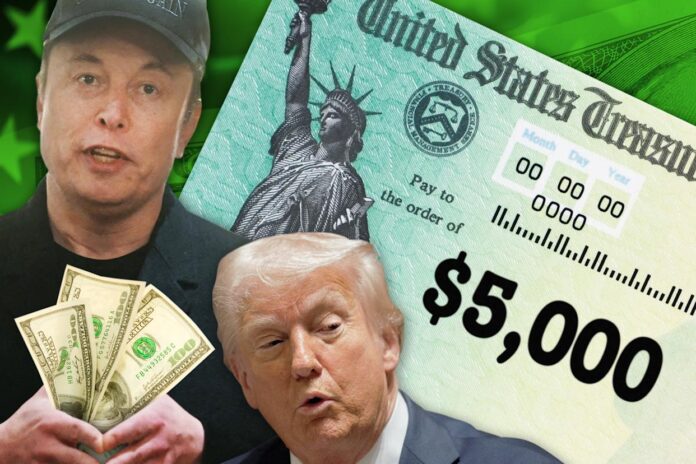In recent weeks, speculation has grown regarding Elon Musk’s Department of Government Efficiency (DOGE) and its potential distribution of $5,000 dividend checks to taxpayers.
This initiative has drawn comparisons to the stimulus checks issued during the pandemic, but the source of funding differs significantly.
James Fishback, a 30-year-old investor, proposed that twenty percent of the savings generated by DOGE be redistributed to taxpayers. He dubbed the initiative the “DOGE Dividend.”
Understanding the DOGE Dividend Proposal
By definition, a dividend is a distribution of earnings by a company to its shareholders, either in cash or stock. A stimulus check, however, is a government-issued payment aimed at stimulating the economy by providing citizens with additional funds.
DOGE, led by Musk, aims to cut over $2 trillion from federal spending to reduce the U.S. deficit. Both Musk and former President Donald Trump have acknowledged the idea of returning a portion of the savings to taxpayers. To date, DOGE has claimed $105 billion in savings through measures such as cutting federal jobs and terminating government contracts.



